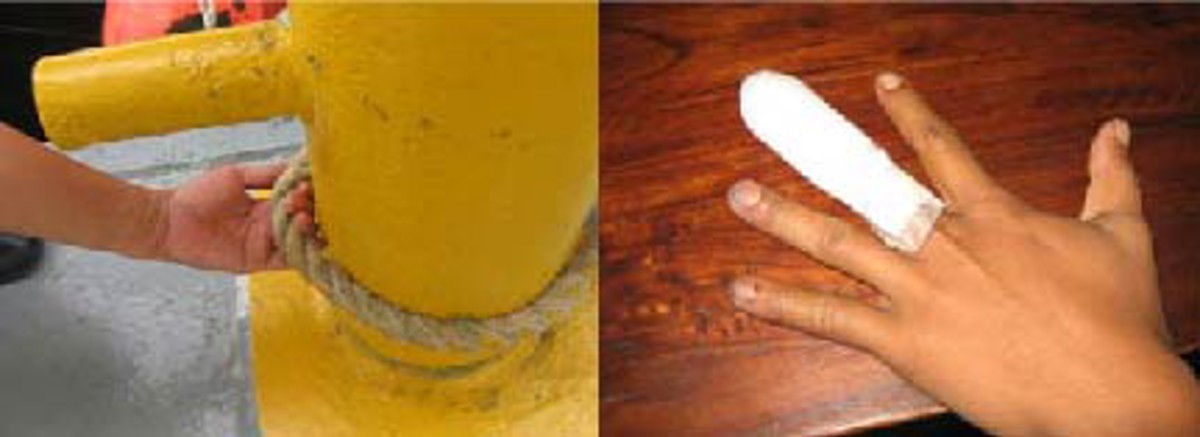Finger injury whilst casting off towing line
- Safety Flash
- Published on 4 February 2008
- Generated on 20 February 2026
- IMCA SF 02/08
- 2 minute read
Jump to:
A Member has reported an incident in which a crew member sustained a finger injury whilst trying to cast off a towing line.
What happened?
The crew member was asked to cast the line off from a bollard on the forecastle deck of the vessel. The towing line was slackened sufficiently to allow the line to be removed from the bollard. When the crew person tried to lift the eye of the towing line, a sudden high swell pushed the vessel astern and the tow line came under tension. The fingers of the crew person’s left hand were trapped between the towing line and the bollard. The master responded immediately and caused the vessel to move ahead, causing the towing line tension to be released and releasing the trapped hand. The crew person suffered the loss of the middle finger nail and slight swelling on two fingers and was given first aid.
The following lessons were learnt:
- Weather and sea conditions should be taken into account when undertaking a risk assessment.
- Good seamanship techniques should be followed: in this case the warping drum could have been used to take off the tension from the towing line. If a warping drum is not available for use then rope/chain stoppers should always be used while casting off mooring lines and towing lines.

Mooring rope and bollard; injured finger
IMCA Safety Flashes summarise key safety matters and incidents, allowing lessons to be more easily learnt for the benefit of the entire offshore industry.
The effectiveness of the IMCA Safety Flash system depends on the industry sharing information and so avoiding repeat incidents. Incidents are classified according to IOGP's Life Saving Rules.
All information is anonymised or sanitised, as appropriate, and warnings for graphic content included where possible.
IMCA makes every effort to ensure both the accuracy and reliability of the information shared, but is not be liable for any guidance and/or recommendation and/or statement herein contained.
The information contained in this document does not fulfil or replace any individual's or Member's legal, regulatory or other duties or obligations in respect of their operations. Individuals and Members remain solely responsible for the safe, lawful and proper conduct of their operations.
Share your safety incidents with IMCA online. Sign-up to receive Safety Flashes straight to your email.